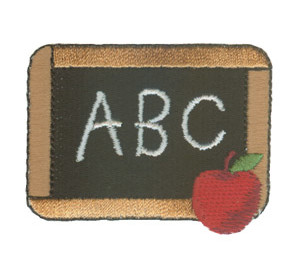It’s that time of year again, the first day of school!
New situations are hard for everyone. For kids, the first day of school is filled with many unknowns and not knowing what to expect can be a source of anxiety and tension. You can minimize this tension by recognizing how important it is to help your child get his bearings, and then taking steps to help make his world more predictable.
The need to be oriented to one’s surroundings is an inborn need in all people, and is so uncomfortable and distressing that we do all that we can to avoid this. We seek out someone to help us get oriented – ideally this is a reliable person who is a source of authority, compassion and warmth.
In the absence of a reliable and trusted adult, children who are disoriented will get their bearings from the children around them. However, kids who are disoriented taking the position of guide for one another is incredibly ineffective! So don’t leave your child with an orientation void to be filled by others much less capable and compassionate than you!
Here are some tips to make the first days of school smoother and more successful for you and your child:
1) Talk to your child in advance about what to expect on the first day. An attendee in a recent parenting workshop I gave shared that her teacher’s kindergarten teacher made a video of the classroom and emailed it to all of the student – this is wonderful! Anything that helps a child feel more prepared for a new experience reduces his anxiety, and primes him for more success socially and academically.
2) Encourage your child to share how he’s feeling about this new beginning. If he expresses discomfort, don’t assume that this is a problem that you need to solve. It’s uncomfortable as parents to hear your child expressing fear or other negative emotions and we tend to want to shut that down by jumping into solution mode, or to reassure them that their concerns aren’t valid. Instead, reflect back and validate to him that you’ve heard his concerns.
3) Introduce your child to his new environment – accompany your child into the new situation to the degree that he’s comfortable with you being there. For young children, take them into the classroom and introduce them to the teacher. Help make an emotional connection with the teacher so that your child feels comfortable being left with her. Walk through the classroom and show him where to hang his backpack, where are the bathrooms, where to get a drink of water.
You might wonder if this the teacher’s job. Ideally, the teacher will spend time connecting with a child and helping to orient him on the first days of school, and the more she does this the more smoothly your child’s adaptation will go. However, my experience has been that there is often a large gap when entering these situations and that children benefit from the parent proactively filling that gap.
4) Let your child know when you’re leaving – do not disappear when his back is turned! It’s common for parents to want to avoid the child’s distress when they leave, but he needs to be able to trust your presence. It’s scary for young children to be left in an unfamiliar place with people they don’t know, before they feel a sense of connection or trust in them.
When you leave, reassure him that you’ll see him later – help him feel connected to you even in your absence. A loving note or a little drawing tucked into lunch can be reassuring for them and remind him of your love even without your physical presence.
5) Give your child something wholesome to eat before he leaves for the day so that his brain and body are well-nourished! This includes proteins, healthy fats and complex carbohydrates (eg eggs, milk, oatmeal with butter). Send snacks that will help his body stay on an even keel – I’ve shared lots of recipes (click on link to see them) that make delicious and easy to pack treats that are good for your child without looking ‘healthy’.
(If you’re reading this and missed the first day of school, you can still apply these ideas. Helping your child’s world be predictable is important any day of the year!)
Above all, smile and stay calm! If you can, take a bit of extra time in the morning so that none of you feel rushed. If you can’t, don’t worry about it. Just keep smiling and send your kids off with the message that you love them, you think they’re wonderful and you trust that they’re going to have a wonderful year!
Avivah

Leave a Reply